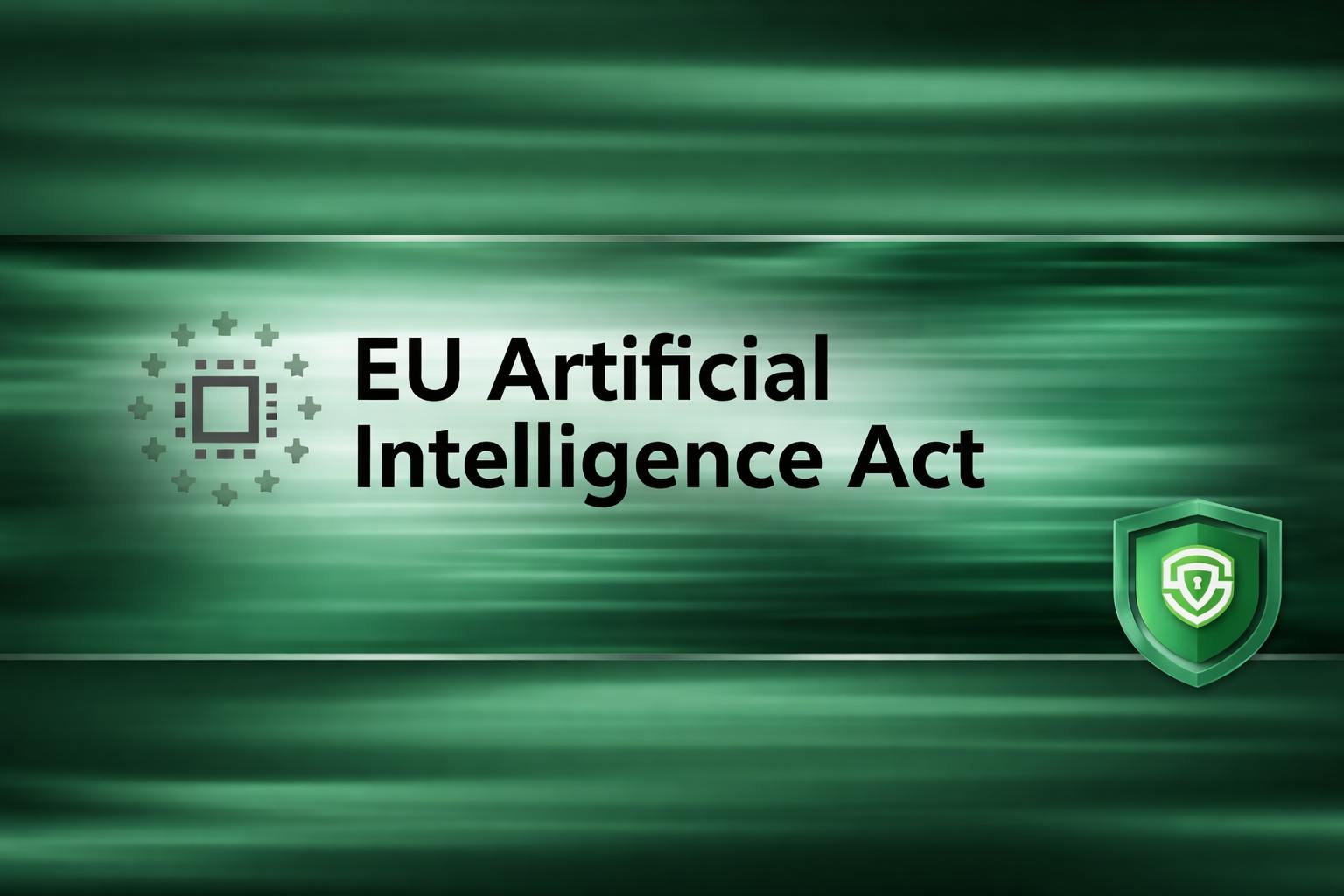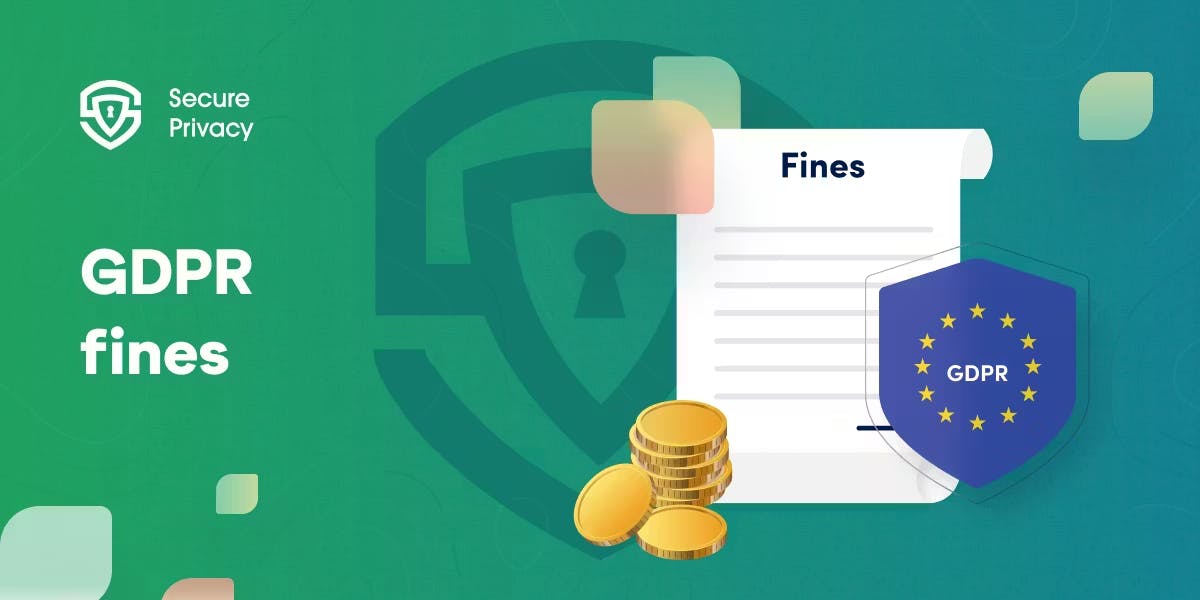PIPEDA vs GDPR: Key Similarities and Differences Between Canada Personal Information Protection and Electronic Documents Act and EU General Data Protection Regulation
Explore differences between PIPEDA and GDPR, key principles, scope, and compliance. Navigate data protection in Canada and the EU with this comprehensive guide.
Ensuring the security of personal information is essential in today's data-driven world. Canada and the European Union have put in place regulations to protect individuals' privacy: the Personal Information Protection and Electronic Documents Act (PIPEDA) and the General Data Protection Regulation (GDPR). Although both frameworks have similar goals, they differ in their features and approaches.
This blog post will help you understand what PIPEDA is, what GDPR is, and how these two data privacy laws compare with each other.
What is PIPEDA and its significance?
The Personal Information Protection and Electronic Documents Act (PIPEDA) is a federal law in Canada that governs the collection, use, and disclosure of personal information by private-sector organizations in the course of commercial activities. Enacted in 2000, it plays a significant role in protecting the privacy rights of individuals while also recognizing the need for organizations to collect and use personal information for legitimate business purposes.
What is GDPR and its significance?
The General Data Protection Regulation (GDPR) is a regulation in EU law on data protection and privacy in the European Union (EU) and the European Economic Area (EEA). It also addresses the transfer of personal data outside the area. Adopted in 2016 and enforced starting May 2018, it aims to give individuals control over their personal data and simplify the regulatory environment for international business by unifying the regulation within the EU.
PIPEDA vs GDPR: Key principles
PIPEDA is based on 10 fair information principles that guide organizations on how to handle personal information appropriately. These principles emphasize:
- Accountability: Organizations are responsible for protecting personal information.
- Consent: Individuals must consent to the collection, use, and disclosure of their personal information.
- Limiting collection: Organizations can only collect personal information necessary for specified purposes.
- Limiting use, disclosure, and retention: Personal information can only be used, disclosed, and retained for the stated purposes and for a reasonable period.
- Accuracy: Personal information must be accurate and up-to-date.
- Safeguards: Organizations must implement appropriate safeguards to protect personal information.
- Openness: Individuals should be informed about how their personal information is being handled.
- Individual access: Individuals have the right to access and correct their personal information.
On the other hand, the GDPR is built upon seven core principles that guide organizations on handling personal data responsibly:
- Lawfulness, fairness, and transparency: Processing must be lawful, fair, and transparent to the individual.
- Purpose limitation: Data can only be collected for specified, explicit, and legitimate purposes.
- Data minimization: Organizations can only collect and process as much data as necessary for the intended purpose.
- Accuracy: Personal data must be accurate and kept up-to-date.
- Storage limitation: Data should be kept for no longer than necessary for the processing purpose.
- Integrity and confidentiality: Appropriate safeguards must be in place to protect personal data.
- Accountability: Organizations are responsible for complying with the GDPR.
In essence, PIPEDA emphasizes responsible data handling with a focus on fairness and transparency, while the GDPR takes a more comprehensive approach, prioritizing individual control and data protection through strong rights and stricter enforcement.
PIPEDA vs GDPR: Personal information
When it comes to personal information, PIPEDA and GDPR differ in their scope and level of detail, impacting what information falls under each regulation's protection.
PIPEDA:
- Broad definition: Encompasses any information that can be used to identify an individual, including traditional identifiers like names and addresses, and financial or medical information.
- Less specific: Doesn't categorize personal information based on sensitivity, offering a general framework for its protection.
GDPR:
- Broader definition: Similar to PIPEDA, but includes additional examples like online identifiers, location data, and health data.
- Categorizes information: Recognizes the sensitive nature of certain data, like health information or religious beliefs, imposing stricter requirements for its handling.
While both regulations aim to protect personal information, the GDPR casts a wider net in terms of what information falls under its scope and may demand additional safeguards for specific types of sensitive data.
PIPEDA vs GDPR: Applicability criteria
PIPEDA and GDPR differ significantly in terms of who they apply to, creating a complex landscape for organizations handling personal information.
- Focuses on Location and Activity: Applies primarily to private-sector organizations within Canada that engage in commercial activities. This means public bodies and non-commercial entities are generally exempt.
- Data Doesn't Need EU Connection: PIPEDA applies regardless of whether the personal information relates to individuals in the EU or elsewhere.
- Focuses on Data Subject Location: Applies to any organization, regardless of location, processing the personal data of individuals residing in the EU, even if the organization itself is not in the EU.
- Doesn't Matter if the Organization is Based in the EU: Whether the organization is public or private doesn't matter as long as it processes data of EU residents.
Key Differences:
- Focus: PIPEDA prioritizes the organization's location and activity type, while the GDPR prioritizes the data subject's location.
- Scope: PIPEDA has a narrower scope, primarily targeting private Canadian businesses, while the GDPR has a wider scope, potentially applying to any organization handling EU residents' data.
Therefore, an organization's location, type (public/private), and the target individuals' geographical residence determine whether PIPEDA or GDPR applies. This intertwined relationship necessitates careful consideration for organizations operating globally or handling data of individuals across borders.
PIPEDA vs GDPR: Extraterritoriality
When it comes to extraterritoriality, PIPEDA and GDPR have contrasting approaches, defining which organizations outside their respective jurisdictions fall under their purview. Let's explore these differences:
PIPEDA:
- Limited reach: PIPEDA primarily focuses on domestic organizations and their activities within Canada.
- "Real and substantial connection" clause: PIPEDA can apply to organizations outside Canada if they have a "real and substantial connection" with the country, meaning their actions significantly impact Canada or its residents. This clause, however, is open to interpretation and can be complex to determine.
GDPR:
- Wider reach: The GDPR adopts a more expansive extraterritorial application. It applies to organizations established outside the EU if they: Offer goods or services to individuals in the EU, or Monitor the behavior of individuals within the EU, regardless of whether the behavior takes place online or offline.
This broader reach signifies that many organizations outside the EU can potentially fall under the GDPR's regulation.
PIPEDA primarily focuses on organizations operating within Canada, while the GDPR casts a wider net, encompassing organizations outside the EU that engage in specific activities involving EU residents. Understanding these differences is crucial for international businesses to determine their compliance obligations.
Similar frameworks appear in Latin America, e.g., Colombia DPL.
PIPEDA vs GDPR: Data controller and data processor
Both PIPEDA and GDPR establish roles for organizations handling personal information: data controllers and data processors. However, they differ in the level of responsibility and control each role carries.
PIPEDA:
- Data Controller: Holds primary responsibility for ensuring personal information is collected, used, and disclosed in compliance with the law.
- Data Processor: Acts on behalf of the data controller, processing personal information according to their instructions. However, PIPEDA doesn't explicitly define data processors or set specific obligations for them.
GDPR:
- Data Controller: Determines the purposes and means of processing personal data, bearing the ultimate responsibility for compliance.
- Data Processor: Processes data under the controller's instructions, but has independent obligations to ensure appropriate security and data protection measures. Additionally, the GDPR requires formal contracts between controllers and processors outlining their respective roles and responsibilities.
The GDPR clearly defines data processors and assigns them specific responsibilities, unlike PIPEDA. This creates a clearer division of accountability and ensures stronger data protection safeguards throughout the processing chain.
PIPEDA vs GDPR: Consent for data processing
When it comes to consent for data processing, PIPEDA and GDPR showcase contrasting approaches, reflecting their underlying philosophies on data privacy.
PIPEDA:
- Adopts a flexible approach, allowing for implied consent in certain situations. This means consent can be inferred from an individual's actions or inaction, based on the context and sensitivity of the data involved.
- Requires organizations to be transparent about their data collection practices and the intended use of personal information.
- Emphasizes the principle of fairness, ensuring individuals understand how their data will be used and have a reasonable expectation of its purpose.
GDPR:
- Embraces a stricter approach, prioritizing explicit consent. This means clear, affirmative, and easily withdrawable consent must be obtained, with all necessary information readily available to individuals before they agree.
- Focuses on individual control, empowering individuals to make informed decisions about their data with full knowledge of its potential uses.
- Requires demonstrable proof of consent, placing the onus on organizations to prove they obtained valid and informed consent from individuals.
In essence, PIPEDA prioritizes balance, allowing for implied consent under specific circumstances, while the GDPR champions individual control through a stringent, explicit consent requirement.
PIPEDA vs GDPR: The Right to be Forgotten
PIPEDA and GDPR offer vastly different approaches to the concept of the "right to be forgotten."
PIPEDA:
- Does not explicitly recognize a right to erasure. Individuals can request organizations to delete or correct inaccurate information, but it's subject to the organization's business needs and legal obligations.
- Also allows organizations to retain personal information as long as necessary for the purpose it was collected.
GDPR:
- Enshrines the right to be forgotten, allowing individuals to request organizations to erase their personal data under certain circumstances, such as when the data is no longer necessary for the original purpose or when consent is withdrawn.
- Prioritizes the individual's right to control their data and have it removed from an organization's systems at their request, subject to some exceptions like maintaining data for legal compliance or public interest.
PIPEDA vs GDPR: Data portability
When it comes to data portability, PIPEDA and GDPR offer contrasting approaches to empowering individuals with control over their information.
PIPEDA:
- Silent on data portability: PIPEDA doesn't explicitly grant individuals the right to receive their personal information in a structured format for transfer to another organization.
GDPR:
- Empowers individuals: The GDPR explicitly enshrines the right to data portability. This allows individuals to request their personal data in a structured, commonly used, and machine-readable format that can be easily transferred to another controller.
This distinction reflects the broader focus of the GDPR on individual control and data protection. While PIPEDA emphasizes responsible data handling, it doesn't provide the same level of explicit control over data transfer as the GDPR.
PIPEDA vs GDPR: International data transfer
When it comes to international data transfer, PIPEDA and GDPR take contrasting approaches, reflecting their different philosophies and priorities:
PIPEDA:
- Adopts a flexible approach, allowing organizations to transfer personal information outside Canada without requiring specific safeguards in the receiving country. However, organizations remain responsible for ensuring the receiving party offers comparable levels of protection.
GDPR:
Imposes stricter regulations on international data transfers. Organizations must ensure the receiving country offers adequate protection for personal data, either through:
- A European Commission adequacy decision: This formally recognizes a country's data protection regime as equivalent to the GDPR.
- Appropriate safeguards: These include contractual clauses, binding corporate rules, or approved codes of conduct.
The GDPR's emphasis on data protection by design necessitates stronger safeguards for cross-border transfers, highlighting its focus on individual control and stringent data protection measures.
PIPEDA vs GDPR: Data breach notifications
When it comes to data breach notifications, PIPEDA and GDPR take vastly different approaches, highlighting the varying levels of urgency and transparency prioritized by each regulation.
PIPEDA:
- Emphasizes the need to notify the Privacy Commissioner of Canada and affected individuals "as soon as feasible."
- This term allows for some flexibility and interpretation, potentially leading to delays in notification.
- The focus seems to be on mitigating harm and taking appropriate corrective action rather than adhering to a strict timeframe.
- Mandates notification of the supervisory authority and potentially affected individuals within 72 hours of becoming aware of a data breach.
- This strict timeframe emphasizes the importance of promptness and transparency in informing individuals and authorities.
- The emphasis lies on immediate communication to minimize potential risks and allow individuals to take necessary steps to protect themselves.
In essence, PIPEDA prioritizes timely action and remediation with some flexibility, while the GDPR emphasizes immediate notification and transparency within a strict timeframe. This reflects the different regulatory philosophies: PIPEDA focuses on responsibility and effective response, while the GDPR prioritizes individual rights and data subject awareness.
PIPEDA vs GDPR: Enforcement and fines
When it comes to enforcing compliance and imposing penalties, PIPEDA and GDPR exhibit stark differences:
PIPEDA:
- Enforcement: Relies on the Canadian Office of the Privacy Commissioner (OPC) to investigate and mediate complaints.
- Fines: Imposes relatively low fines for non-compliance, capped at $100,000 CAD per violation.
- Focus: Primarily emphasizes guidance and corrective measures through investigations and recommendations.
- Enforcement: Empowers each EU member state's data protection authority (DPA) to investigate and impose penalties.
- Fines: Carries the potential for significantly higher fines, reaching €20 millionor 4% of a company's global annual turnover, whichever is higher.
- Focus: Combines investigations and enforcement actions with a stronger emphasis on deterring non-compliance through substantial financial penalties.
In essence, PIPEDA prioritizes education and collaboration, while the GDPR adopts a stricter approach with potentially hefty fines to ensure compliance by organizations.
What do I need to do if I need to comply with both PIPEDA and GDPR?
Operating internationally or handling personal information subject to both PIPEDA and GDPR can be a complex undertaking.
Here are the key considerations for compliance:
- Determine Applicability: Assess whether your organization falls under the jurisdiction of PIPEDA and GDPR. Consider factors such as the location of your business, the type of data you handle, and the individuals whose data you process.
- Data Mapping: Conduct a thorough data mapping exercise to identify all personal data flows within your organization. Understand where the data originates, how it is collected, stored, and shared, and the purpose for which it is processed. This exercise will help you identify areas where both PIPEDA and GDPR requirements overlap.
- Lawful Basis for Processing: Familiarize yourself with the lawful bases for processing personal data under GDPR and the consent requirements under PIPEDA. Ensure that you have a valid legal basis for processing personal data under both regulations and that you obtain explicit consent when required.
- Individual Rights: Understand and respect the individual rights granted under both PIPEDA and GDPR, such as the right to access, rectify, and erase personal data. Establish procedures to handle data subject requests within the prescribed timelines and ensure that individuals can exercise their rights easily.
- Data Transfers: If you transfer personal data between the EU and Canada, ensure that you meet the specific requirements for international data transfers under GDPR, such as implementing appropriate safeguards like Standard Contractual Clauses or obtaining adequacy decisions.
- Security Measures: Implement robust security measures to protect personal data against unauthorized access, disclosure, or loss. Both PIPEDA and GDPR emphasize the importance of data security and require organizations to implement appropriate technical and organizational measures.
- Breach Notification: Be prepared to handle data breaches effectively and promptly notify the relevant authorities and affected individuals as required by both PIPEDA and GDPR. Establish an incident response plan to mitigate the impact of data breaches and ensure compliance with notification obligations.
For more information, we created this guide to complying with both PIPEDA and GDPR.
Final thoughts: PIPEDA and GDPR
While both PIPEDA and GDPR aim to protect individual privacy in the digital age, their approaches differ significantly. PIPEDA emphasizes fairness and transparency, focusing on responsible data handling within Canada's borders. In contrast, the GDPR adopts a more comprehensive and rights-based approach, empowering individuals with extensive control over their data and holding organizations accountable with potentially significant financial consequences for non-compliance. Understanding these distinctions is crucial for organizations navigating the complex landscape of data privacy regulations, particularly those operating internationally or handling personal information subject to both frameworks.
As the digital world continues to evolve, staying informed about these evolving regulations will be essential for ensuring responsible data practices and fostering trust in the digital ecosystem.
Get Started For Free with the
#1 Cookie Consent Platform.
No credit card required

EU AI Act for CTOs: What Engineering Teams Must Build, Document, and Operationalize
Your product team ships a new AI-powered hiring screening feature. It ranks candidates automatically based on CV data. It is running in production across three enterprise clients in Germany, France, and the Netherlands. Nobody ran a risk classification exercise before launch. There is no technical documentation file. The logging infrastructure captures model outputs but not the decision logic. You have no human override mechanism.

GDPR Fines and Penalties Explained: Calculation, Enforcement Trends, and Risk Mitigation
Your legal team forwards you a letter from a supervisory authority. A data subject complaint has triggered a formal investigation. Your company processed personal data without a valid lawful basis six months ago — a decision made by a product manager who didn't loop in privacy counsel. Now you're looking at a potential Tier 2 fine, which means up to €20 million or 4 percent of your annual global turnover, whichever is greater. You have thirty days to respond.
- GDPR

Privacy Governance for Financial Services: An Operational Framework for Banks and Fintech
Your compliance team has documented your GDPR obligations. But who monitors whether those obligations are being met on Tuesday afternoon when a new vendor API goes live?
- Privacy Governance
- Fintech

